.
9 September 2011
Last updated at 17:00
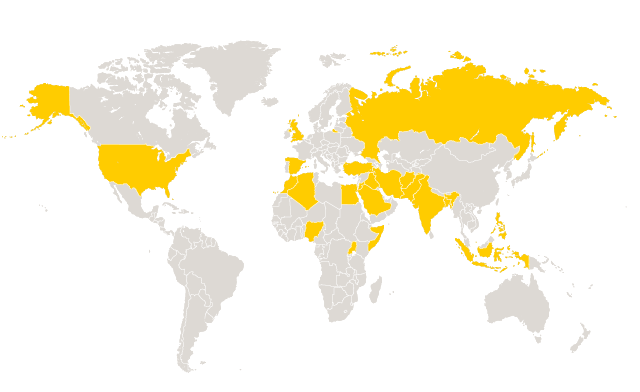
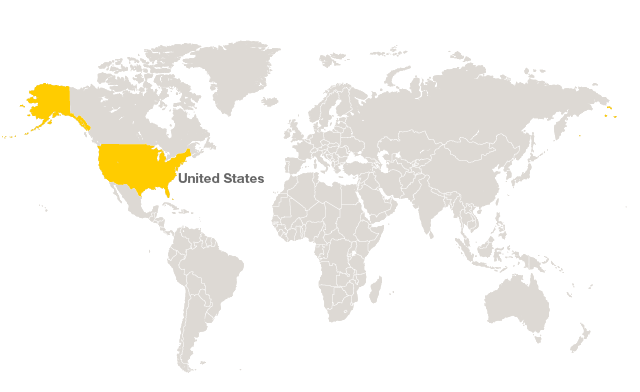

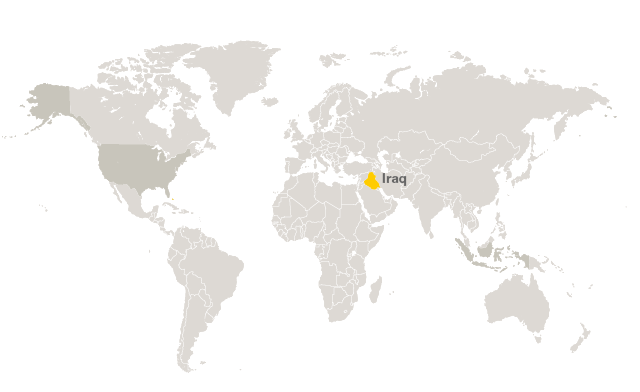
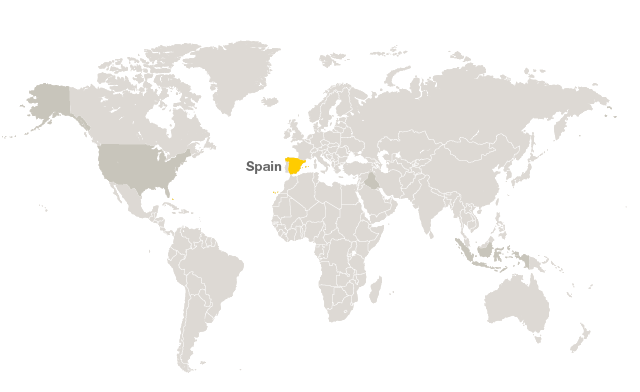
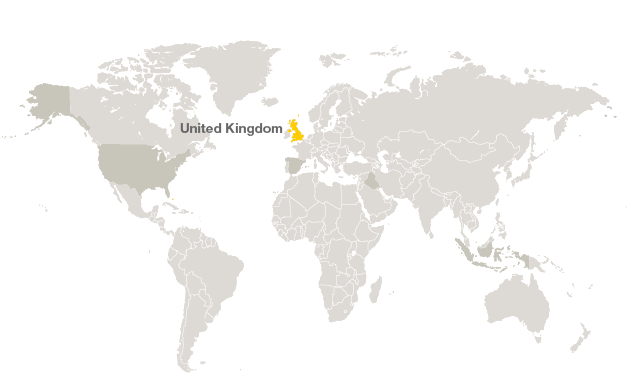
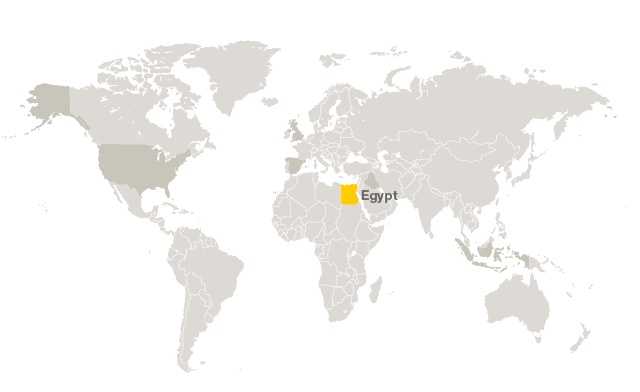
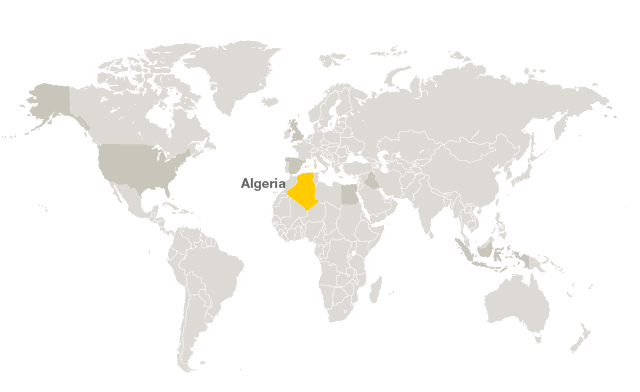
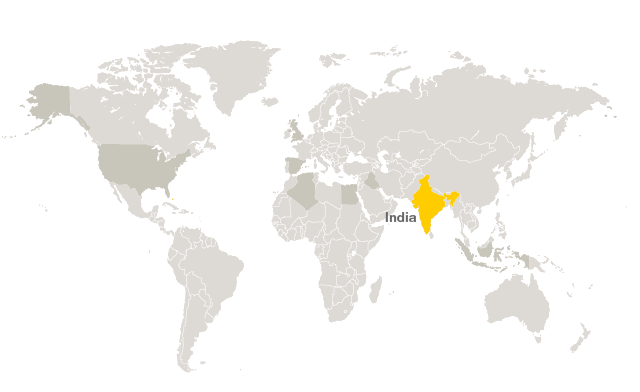
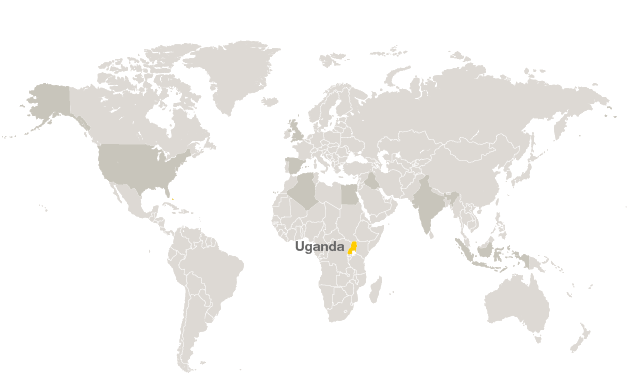
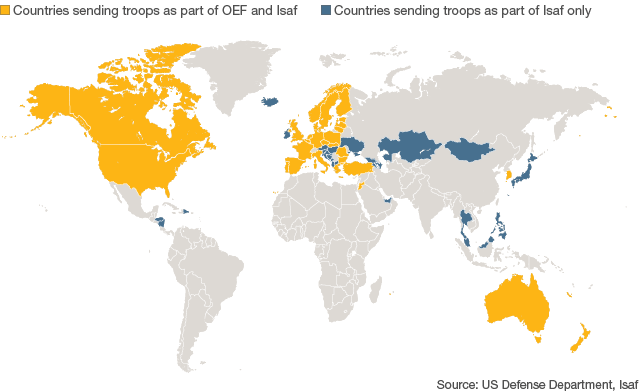

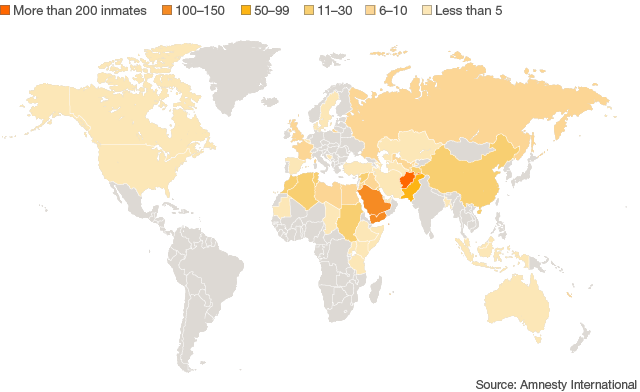
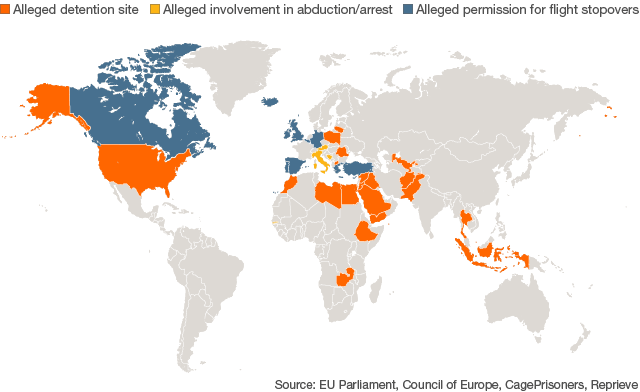
After 9/11: Global effects of the 'war on terror'
The attacks on the United States on 11 September 2001 led to sweeping changes in US foreign and security policy. President George W Bush characterised this new approach as the "war on terror". Click on the images below to find out more about the aftershocks of the 9/11 attacks around the world.
Global militant attacks
Countries where a single attack has killed more than 20 people since 9/11

The 10 years since 9/11
In the past decade, militant groups either directly linked to al-Qaeda or inspired by its message have committed acts of violence around the world.
The United States eventually tracked down its number one target, Osama Bin Laden, but has yet to succeed in its wider aim of eliminating the threat to international security from militant groups.
Find out more about some of the most high-profile attacks of the last 10 years by clicking the arrows on the map.
The United States eventually tracked down its number one target, Osama Bin Laden, but has yet to succeed in its wider aim of eliminating the threat to international security from militant groups.
Find out more about some of the most high-profile attacks of the last 10 years by clicking the arrows on the map.
Global militant attacks
Major attacks from 9/11 by al-Qaeda or Islamist militant groups

11 September
2001
New York 9/11 attacks
Hijackers fly commercial airliners into both the World Trade Center in New York and the Pentagon in Washington DC. A fourth aircraft crashes before reaching its target.
Al-Qaeda claims responsibility for the attacks and its leader, Osama Bin Laden, heads the US government's most wanted list.
Al-Qaeda claims responsibility for the attacks and its leader, Osama Bin Laden, heads the US government's most wanted list.
Global militant attacks
Major attacks from 9/11 by al-Qaeda or Islamist militant groups

12 October
2002
Bali bombings
Two bombs explode almost simultaneously in busy nightclubs in Bali's popular Kuta district, killing 202 people, most of them foreign tourists.
The bombing is attributed to an organisation with links to al-Qaeda called Jemaah Islamiah. It is said to have been formed in Malaysia in the late 1980s by a handful of exiled Indonesian extremists.
The group is responsible for other attacks including the bombing of the Australian embassy in Jakarta, and 200 suspected Jemaah Islamiah members have been arrested across the region.
The bombing is attributed to an organisation with links to al-Qaeda called Jemaah Islamiah. It is said to have been formed in Malaysia in the late 1980s by a handful of exiled Indonesian extremists.
The group is responsible for other attacks including the bombing of the Australian embassy in Jakarta, and 200 suspected Jemaah Islamiah members have been arrested across the region.
Global militant attacks
Major attacks from 9/11 by al-Qaeda or Islamist militant groups

19 August
2003
UN headquarters in Iraq
A truck bomb is driven into the UN headquarters in Baghdad, killing 19 people including the UN special representative for Iraq, Sergio Vieira de Mello. More than 100 people are injured in the blast.
A group called Tawhid wa al-Jihad claims responsibility for the attack. The group is lead by Abu Musab al-Zarqawi, who later renames his organisation al-Qaeda in Iraq.
Al-Qaeda in Iraq becomes a major force in the insurgency in the country, masterminding a string of bomb attacks on Iraq's Shia-dominated government and foreign forces. Its most deadly attack kills about 400 people and injures another 400 in the Sinjar region in 2007.
A group called Tawhid wa al-Jihad claims responsibility for the attack. The group is lead by Abu Musab al-Zarqawi, who later renames his organisation al-Qaeda in Iraq.
Al-Qaeda in Iraq becomes a major force in the insurgency in the country, masterminding a string of bomb attacks on Iraq's Shia-dominated government and foreign forces. Its most deadly attack kills about 400 people and injures another 400 in the Sinjar region in 2007.
Global militant attacks
Major attacks from 9/11 by al-Qaeda or Islamist militant groups

11 March
2004
Madrid train attacks
Ten bombs explode within minutes of each other on four commuter trains in the Spanish capital Madrid. The blasts kill 191 people and wound 1,841.
Though the evidence points towards the attack being organised by Islamist militants, no direct connection to a particular organisation has ever been proved. Seven of the key suspects - including the alleged mastermind, Tunisian Serhane ben Abdelmajid Fakhet - die in an explosion at a Madrid flat in April 2004 as police close in on them.
Twenty-one people have been convicted of involvement in the attack.
Though the evidence points towards the attack being organised by Islamist militants, no direct connection to a particular organisation has ever been proved. Seven of the key suspects - including the alleged mastermind, Tunisian Serhane ben Abdelmajid Fakhet - die in an explosion at a Madrid flat in April 2004 as police close in on them.
Twenty-one people have been convicted of involvement in the attack.
Global militant attacks
Major attacks from 9/11 by al-Qaeda or Islamist militant groups

7 July
2005
London 7/7 attacks
Four suicide bombers strike in central London, killing 52 people and injuring more than 700. The attacks target the transport system at the end of the morning rush hour.
The bombings are carried out by UK citizens. There is evidence of at least two of the bombers having contact with Islamist militants in Pakistan, but no direct link to al-Qaeda is established by any of the subsequent inquiries.
A second attack on the London transport system two weeks later, on 21 July, fails when the bombs do not detonate.
The bombings are carried out by UK citizens. There is evidence of at least two of the bombers having contact with Islamist militants in Pakistan, but no direct link to al-Qaeda is established by any of the subsequent inquiries.
A second attack on the London transport system two weeks later, on 21 July, fails when the bombs do not detonate.
Global militant attacks
Major attacks from 9/11 by al-Qaeda or Islamist militant groups

23 July
2005
Sharm al-Sheikh attacks
Eighty-eight people are killed and more than 200 wounded when three bombs explode in the early hours of the morning at the Red Sea resort of Sharm al-Sheikh. The majority of those killed are Egyptians.
In the most deadly of the three blasts, a suicide bomber drives into a hotel's reception area.
In the most deadly of the three blasts, a suicide bomber drives into a hotel's reception area.
Global militant attacks
Major attacks from 9/11 by al-Qaeda or Islamist militant groups

11 December
2007
Algiers bombing
A double car bombing in Algiers hits a UN building and a bus full of students. More than 30 people are killed, including 17 UN staff.
Responsibility for the attacks is claimed by al-Qaeda in the Land of the Islamic Maghreb. The organisation, which opposes the secular Algerian government, is responsible for a series of bomb attacks across the country.
Responsibility for the attacks is claimed by al-Qaeda in the Land of the Islamic Maghreb. The organisation, which opposes the secular Algerian government, is responsible for a series of bomb attacks across the country.
Global militant attacks
Major attacks from 9/11 by al-Qaeda or Islamist militant groups

26 November
2008
Mumbai attacks
Ten gunmen launch an attack in the Indian city of Mumbai targeting the railway station, two luxury hotels, a hospital and other sites. Fighting with Indian security forces continues for three days. Eventually nine of the gunmen are killed and one is arrested.
The attacks leave 166 people dead and blame is attributed to Pakistan-based Islamist militants Lashkar-e-Taiba. After initial denials, Pakistan acknowledges that the attacks were partially planned on its territory.
The sole surviving gunman, Mohammad Ajmal Amir Qasab, is caught on camera shooting at passengers in the railway station and later found guilty on charges including murder, waging war on India and possessing explosives.
The attacks leave 166 people dead and blame is attributed to Pakistan-based Islamist militants Lashkar-e-Taiba. After initial denials, Pakistan acknowledges that the attacks were partially planned on its territory.
The sole surviving gunman, Mohammad Ajmal Amir Qasab, is caught on camera shooting at passengers in the railway station and later found guilty on charges including murder, waging war on India and possessing explosives.
Global militant attacks
Major attacks from 9/11 by al-Qaeda or Islamist militant groups

11 July
2010
Kampala bombings
Two bombs kill 74 people and injure another 70 in Uganda's capital, Kampala. The explosions take place in a rugby club and an Ethiopian restaurant where fans have gathered to watch the football World Cup final on television.
The militant Islamist group al-Shabab claims responsibility for the attack. The group, which has links to al-Qaeda, is fighting to impose a strict version of Sharia law in Somalia.
Ugandan troops provide the bulk of the 5,000 African Union peacekeepers protecting the Somali capital Mogadishu.
The militant Islamist group al-Shabab claims responsibility for the attack. The group, which has links to al-Qaeda, is fighting to impose a strict version of Sharia law in Somalia.
Ugandan troops provide the bulk of the 5,000 African Union peacekeepers protecting the Somali capital Mogadishu.
Afghanistan mission
Countries which have sent troops or reconstruction teams to Afghanistan since 2001

| Countries sending troops as part of OEF and ISAF | Countries sending troops as part of ISAF only |
|---|---|
| Australia | Albania |
| Belgium | Armenia |
| Bulgaria | Austria |
| Canada | Azerbaijan |
| Czech Republic | Bosnia & Herzegovina |
| Denmark | Croatia |
| Estonia | Georgia |
| Finland | Hungary |
| France | Iceland |
| Germany | Ireland |
| Greece | Luxembourg |
| Italy | Macedonia |
| Jordan | Malaysia |
| Latvia | Mongolia |
| Lithuania | Montenegro |
| Netherlands | Singapore |
| New Zealand | Slovenia |
| Norway | Sweden |
| Poland | Tonga |
| Portugal | Ukraine |
| Republic of Korea | United Arab Emirates |
| Romania | |
| Slovakia | |
| Spain | |
| Sweden | |
| Turkey | |
| United Kingdom | |
| USA |
Following the 9/11 attacks, the United States invaded Afghanistan to stop al-Qaeda using the country as its base. The mission was launched under the title of Operation Enduring Freedom (OEF).
Later, Nato's International Security Assistance Force (Isaf) was deployed in the country with a mission to promote security and development, as well as train Afghan soldiers and police.
At first the two missions had separate objectives, but over the years they have merged and are now under joint command. More than 50 countries have sent troops or reconstruction teams to Afghanistan. Many countries plan to withdraw their troops by 2015.
Later, Nato's International Security Assistance Force (Isaf) was deployed in the country with a mission to promote security and development, as well as train Afghan soldiers and police.
At first the two missions had separate objectives, but over the years they have merged and are now under joint command. More than 50 countries have sent troops or reconstruction teams to Afghanistan. Many countries plan to withdraw their troops by 2015.
Iraq war
Countries which have sent troops or reconstruction teams to Iraq since 2003

| Invasion forces | Post-invasion forces |
|---|---|
| USA | Albania |
| United Kingdom | Armenia |
| Poland | Azerbaijan |
| Australia | Bosnia-Herzegovina |
| Bulgaria | |
| Czech Republic | |
| Denmark | |
| El Salvador | |
| Estonia | |
| Georgia | |
| Kazakhstan | |
| Latvia | |
| Lithuania | |
| Macedonia | |
| Moldova | |
| Mongolia | |
| Romania | |
| South Korea | |
| Slovakia | |
| Italy | |
| Japan | |
| Ukraine | |
| Norway | |
| Singapore | |
| Hungary | |
| The Netherlands | |
| Portugal | |
| Tonga | |
| New Zealand | |
| Thailand | |
| Philippines | |
| Honduras | |
| Dominican Republic | |
| Spain | |
| Nicaragua |
Following 9/11, President George W Bush identified Iraq as a member of what he termed an "axis of evil".
In March 2003, Iraq was invaded by a US-led coalition which planned to disarm the country and replace its government. A large number of countries sent peacekeepers and reconstruction teams in an attempt to control the sectarian violence that followed the invasion and Saddam Hussein's removal from power.
The final US combat troops left Iraq in 2010.
In March 2003, Iraq was invaded by a US-led coalition which planned to disarm the country and replace its government. A large number of countries sent peacekeepers and reconstruction teams in an attempt to control the sectarian violence that followed the invasion and Saddam Hussein's removal from power.
The final US combat troops left Iraq in 2010.
Guantanamo Bay
Countries that have had citizens detained in the US Guantanamo Bay facility

| Countries with Guantanamo inmates | Number of Guantanamo inmates |
|---|---|
| Afghanistan | 220 |
| Algeria | 26 |
| Australia | 2 |
| Azerbaijan | 1 |
| Bahrain | 6 |
| Bangladesh | 2 |
| Belgium | 2 |
| Bosnia and Herzegovina | 4 |
| Canada | 2 |
| Chad | 1 |
| China | 22 |
| Denmark | 1 |
| Egypt | 6 |
| Ethiopia | 1 |
| France | 7 |
| Indonesia | 1 |
| Iran | 3 |
| Iraq | 9 |
| Jordan | 9 |
| Kazakhstan | 4 |
| Kenya | 1 |
| Kuwait | 12 |
| Libya | 10 |
| Malaysia | 2 |
| Maldives | 1 |
| Mauritania | 3 |
| Morocco | 14 |
| Pakistan | 72 |
| Palestinian territories | 6 |
| Qatar | 1 |
| Russia | 9 |
| Saudi Arabia | 133 |
| Somalia | 4 |
| Spain | 1 |
| Sudan | 12 |
| Sweden | 1 |
| Syria | 11 |
| Tajikistan | 12 |
| Tanzania | 1 |
| Tunisia | 12 |
| Turkey | 5 |
| Turkmenistan | 1 |
| Uganda | 1 |
| United Arab Emirates | 2 |
| United Kingdom | 9 |
| United States | 1 |
| Uzbekistan | 6 |
| Yemen | 117 |
The Guantanamo Bay detention facility was opened in January 2002, after the invasion of Afghanistan. Detainees in Guantanamo were held outside the US justice system and there have been many allegations of harsh treatment.
US government files obtained by the website Wikileaks and published in US and European newspapers suggest that more than 780 people have been held at the facility. According to the leaked assessments, US military analysts considered only 220 of those detained at Guantanamo to be dangerous extremists.
President Barack Obama had promised to close the facility within a year of taking office. However, he has failed to implement his plan to transfer prisoners to maximum security prisons for trial in the civilian justice system.
US government files obtained by the website Wikileaks and published in US and European newspapers suggest that more than 780 people have been held at the facility. According to the leaked assessments, US military analysts considered only 220 of those detained at Guantanamo to be dangerous extremists.
President Barack Obama had promised to close the facility within a year of taking office. However, he has failed to implement his plan to transfer prisoners to maximum security prisons for trial in the civilian justice system.
Extraordinary rendition
Countries reported to have been involved US extraordinary rendition operations

| Alleged detention site | Alleged permission for flight stopovers | Alleged involvement in abduction/arrest |
|---|---|---|
| Afghanistan | Belgium | Austria |
| Egypt | Canada | Bosnia-Herzegovina |
| Ethiopia | Cyprus | Gambia |
| FYR Macedonia | Germany | Italy |
| Indonesia | Greece | Zambia |
| Iraq | Iceland | |
| Jordan | Ireland | |
| Libya | Portugal | |
| Lithuania | Spain | |
| Morrocco | Turkey | |
| Pakistan | UK | |
| Poland | ||
| Romania | ||
| Saudi Arabia | ||
| Syria | ||
| Thailand | ||
| USA | ||
| Uzbekistan | ||
| Yemen | ||
| Zambia |
Extraordinary rendition is the term used to describe the transfer of detainees from one state to another, outside normal legal processes.
Since the start of the "war on terror", the US Central Intelligence Agency has conducted a rendition programme.
The European Parliament, the Council of Europe and the UN have held investigations into the practice. Many countries are alleged to have been involved in aiding rendition by allowing the abduction of suspects on their territory, permitting flights to land for refuelling, or housing secret detention facilities.
Most countries have refused to confirm or deny the allegations, though the US admits the existence of the programme.
Since the start of the "war on terror", the US Central Intelligence Agency has conducted a rendition programme.
The European Parliament, the Council of Europe and the UN have held investigations into the practice. Many countries are alleged to have been involved in aiding rendition by allowing the abduction of suspects on their territory, permitting flights to land for refuelling, or housing secret detention facilities.
Most countries have refused to confirm or deny the allegations, though the US admits the existence of the programme.
~RS~q~RS~~RS~z~RS~54~RS~)



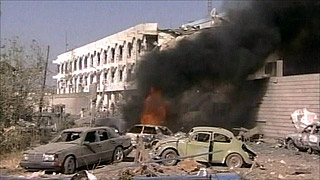

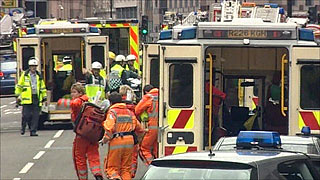
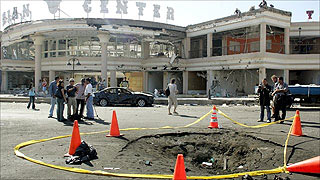
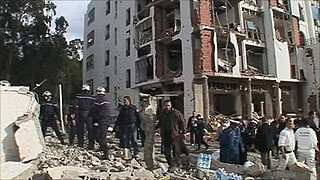
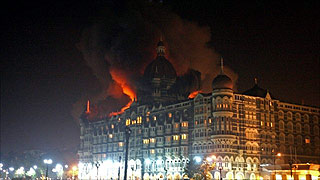
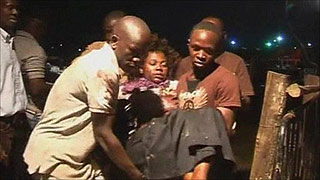











 As it happened
As it happened